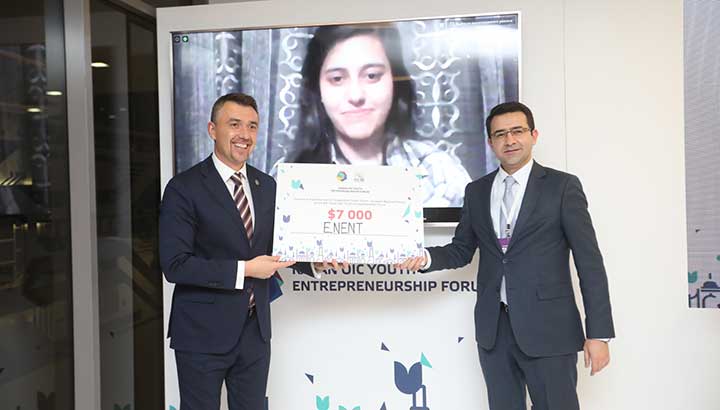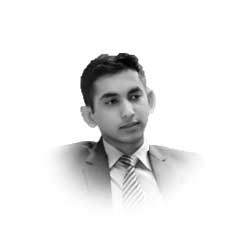By: Ahmed Umer Sohaib
The leadership of political parties were of opinion of complete lockdown during the first wave and was asking public to stay away from gatherings. In second wave, the same political parties can be seen adamant on holding Jalsas despite the fact that covid-19 cases have spiked to the extent recorded earlier in June-July.
The second wave of covid-19 is knocking at our doors. Mortality rate surged up to more than 50% within a week. Educational institutes have been closed. New SOPs are being devised and implemented. But what are and should be the takeaways from the first wave of covid-19 when formulating strategies to curb the spread of virus was comparatively an arduous task than now? One inescapable fact we have known by now that the only weapon to fight covid-19 is a vaccine. All other strategies are an attempt to mitigate the transmission of virus and mortalities caused by it.
One of the strategies that yielded significant results while devising policies on covid-19 during first wave was the formation of NCOC. Though it has been a focal of discussion among the political ranks about the acceptability of a hybrid model of governance in Pakistan even when democracy is still in infancy, NCOC delivered few good results than anticipated. It is because of couple of reasons. One, the policies were discussed and made on the basis of real data. The missing factor that we always have experienced in our public policies was them not being data-oriented. Data renders precision and rationality to policies. Second, all the resources were accumulated at one place that greatly helped to skip the long route of gaining bureaucratic consents. All stakeholders were present on the table that made the process swift. Third, due to its apolitical nature, it helped in enhancing inter-provincial coordination that played a momentous role in diffusing center-province face-off. Since, 18th Amendment has devolved many subjects including health, NCOC suggested and guided provinces on covid-19 issue through available data.
Another takeaway from the first wave of covid-19 is for the political parties. The sheer lack of gravity in their political attitude was evident even then and so as now. This attitude of protecting only the personal and political stakes led to a poor quality debate in the parliament and committees. The current political traffic jam has overshadowed the very issue of covid-19 and its implications on public mundane matters. At this moment, political parties are in the state of a paradox. The leadership of political parties were of opinion of complete lockdown during the first wave and was asking public to stay away from gatherings. In second wave, the same political parties can be seen adamant on holding Jalsas despite the fact that covid-19 cases have spiked to the extent recorded earlier in June-July. Their new statements jeopardize their old stance on covid-19. It is a sad state of affairs that public health and safety is not important for the political parties. In these uncertain times of second wave of covid-19, will constructive and a quality debate take place in the parliament? This onus lies on the political parties.
Another important takeaway from the first wave of covid-19 was the incapacitation of the shoddy mechanism of reaching out for those who got badly effected by covid-19 lockdown at Gali and Mohallah level. Rather than activating an internal welfare segment, the irrational idea of political parties to launch work force like Tiger Force or Sher Jawan Force that proved shortly no more than a political gimmick. Not having a clear dimension and guidance on how to work at grass root level, these temporary work forces couldn’t deliver much. What has been their performance at community level? How their performance was evaluated? What authorities and powers they exercised to implement SOPs among public? These are some serious questions. Every political party used to have in it a welfare segment that always worked at gross root level. Due to structural and administrative crumbling within political parties and a shift towards more personality driven political parties, the fissures, divisions and tensions are apparent. This also resulted in a lost connection with a common man.
As covid-19 is again a potential threat to us all, a common man is looking at the political machinery for better and sane policies. The government has a primary obligation in coping the virus with all its intent and resources. The parliament must be made a relevant forum to discuss the second wave and its impact. The parliamentary committees should play a greater role in supervising executive functions and provide policy input. More policies be made on the basis of data with an involvement of technology. Rather than launching new work forces, government needs to take community on-board in less developed and rural areas. Local representatives can be better utilized in reaching to deserving people. In some areas of KPK, clerics and police also proved beneficial in creating awareness and provision of rashan bags.
The government’s promise of bringing a local government system is still awaiting light of the day. It is local government representatives who have a better reach to the Gali and Mohallah level. Formulating policies without giving life to a local government will eventually strengthen the notion of a centralized governance. Local government is protected by the constitution in Articles 32 and 140-A, and each province must have its own local-government-enabling legislation and ministries responsible for implementation. No matter how productive the policies are made in Islamabad, the implementation shall always be in dire need of a local political setup.
This is the litmus test for all political parties. A ruthless self-examination is a must. Structural changes are required in political parties to better adapt to current political landscape. Agility of political parties at grass-root level is an actual constituency politics. Every political party must train its workers on disaster management. Be it covid-19, a flood or an earthquake, political workers must have a strong footing within the community. A lost direct connection with a common man awaits stabilization.
The writer is a lecturer at a private University in Lahore. He is also a youth correspondent to Commonwealth in Pakistan. He can be reached at [email protected]



